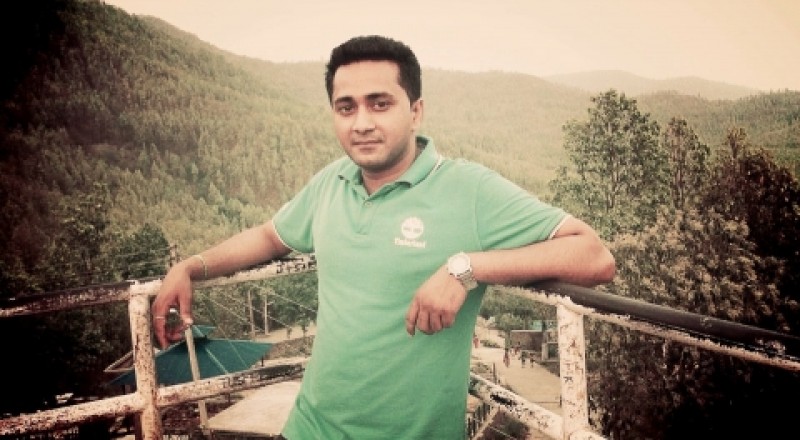Multi-Drug Resistant Tuberculosis (MDR-TB) is a type of TB that is resistant to both isoniazid [INH] and rifampicin [RMP], two of the first-line drugs used in treating smear-positive pulmonary tuberculosis. In 2014, nearly 480 000 people were reported suffering from MDR-TB globally. Drug resistant TB is an increasing threat to the success of global TB control. In Nepal, according to National Tuberculosis Centre (NTC) total number of MDR TB patient in 2015 is 379. The number has increased by 8% compared to the figures of 2013/14 which was 349.
The duration of treatment is minimum 20 months and careful supervision and patient support is required to identify problems associated with treatment as well as to ensure patients complete treatment. Although TB treatment is available in numerous hospitals and health centres, MDR TB treatment is available only in 13 centres and 73 sub centres throughout the country. National TB Programme (NTP) provides free drugs, the treatment is long, unpleasant and means patients struggle to maintain their livelihood.
HERD, in collaboration with the NTP, have designed, piloted and has been evaluating an improved supervision and patient support approach aimed at MDR TB patients. The study clearly highlights an urgent need to define and implement supervision and patient support.
Sanjeev Singh, Research Officer at HERD shares his experiences working on MDR TB study in Rupandehi
It has been 14 months since I started working for the COMDIS funded MDR TB study. In this study, I am based at Lumbini Zonal Hospital, Rupandehi and work as a researcher/counsellor providing counselling to MDR TB patients who have psychosocial issues. I have some experience of previously working in many places for different projects, but this has been my longest involvement in any project so far.
While working here, I came across many patients who have been receiving MDR TB treatment from various DOTS centres under the Lumbini Zonal Hospital like the sub centres from Nawalparasi, Gulmi, Palpa and Kapilvastu. It has been a very good experience I have had an opportunity to talk to many MDR TB patients as well as the people working in the sector. Various screening tools are used to screen the patients for depression and anxiety and counselling using Healthy Activity Programme (HAP) model is provided to patients if their score indicates depression. The counselling has helped to cure many patients.
Till date, 80 patients from Lumbini Zonal hospital have been enrolled with us for the intervention of whom 10 have been enrolled in HAP. Here at Lumbini Zonal Hospital my work has been going on really well. The DOTS in-charge at Lumbini Zonal hospital is really supportive and has helped us in coordinating with other DOTS centres, health workers as well as patients. As the medication for MDR TB is long, the patients face various types of psychological and social problems. To help patients deal with their issues, we provide counselling where we try to understand the root cause of their psychological distress and counsel them accordingly. We talk to them about their problems, tell them ways that they could adopt to deal with their problems and also inform them about the disease. It helps them to understand what the disease is and they are also able to inform others about it.

While observing the patients, I have noticed that most of MDR TB patients belong to low economic status; like people who work on a daily wage or who work in India on a monthly basis to support the family. During the treatment, the patient has to come to the DOTS centre for taking medicine for 20 months, this may interrupt the patient’s work and income pushing them further into poverty. This gets worse when the patient is the sole breadwinner for the family as during this period along with the financial hardships, many other problems arise. The patient is found to be mentally disturbed not because he/she suffered from the disease but with the thought of how to run the family.
Government provides some allowance to these patients for nutritious diet but I feel provision of vocational training and skills development training will be very helpful for the patient. MDR TB patient hostel has been established but limited patients have been getting the facility but not all can be included.
When I first came here I didn’t have any idea about the hardships of TB patients. I only had information about TB from magazines, books and opinions from the society. I used to feel that the major problem of TB patients is stigma and discrimination from the society. Only after dealing with MDR TB patients first hand, I realized numerous problems they have to face while on treatment including financial problems; problems faced while reaching the health facilities. However, the positive aspect is that despite all the challenges they continue taking the medicines.
After more than a year of implementation of intervention in Lumbini Zonal Hospital, the study is about to conclude in May. The study has been a great learning experience for me. Furthermore, some of the patients told me that the counselling provided have helped them ease their problems. I am hopeful that the learnings and findings of the study will be helpful for NTC to inform their programmes while designing provision of psychosocial problems for MDR TB patients.



Comments(0)
No comments found.